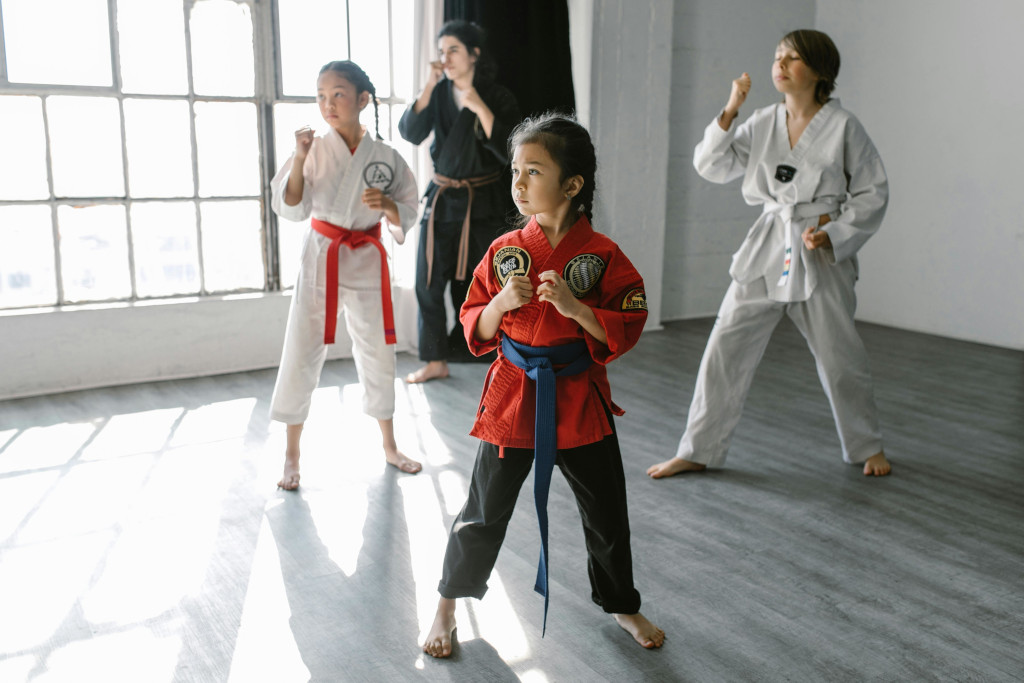SingaporeMotherhood | Parenting
May 2024
Redefining Singapore’s Education System to Stay Relevant in the Cognitive Age

A recent parent-teacher meeting got me thinking about the trajectory of Singapore’s education system. We have catapulted ourselves from a third world country to first world status in just one generation. A huge feat in under 60 years. High literacy rates and compulsory education shows the effect of successful Educatum.
Yet, there are many other Latin words for ‘educate’. Let’s look at three of them.
Firstly, Educatum refers to the act of teaching or training with the intention to pass on specific knowledge. This is one definition we have achieved spectacularly well as a nation.
A second, Educare, means to nourish or bring up, not just physical needs, but the mental and emotional as well. Social-emotional learning and the recent emphasis on mental wellness attempts to address this gap.
Finally, Educere means to draw out a child’s abilities and help them find their place in this world. Few parents are actively drawing out their child’s potential because education has been too narrowly defined by grades and results.
(See also: “IS IT REALLY OKAY TO LET MY CHILD FAIL SPELLING?”)
Is Singapore’s Education System Future-proof?

I recognise that any training involves a fixed set of criteria to measure an individual’s competency levels. Martial arts’ coloured belts or grades in music systematically promote learners to the next level based on their skill abilities.
But at the same time, how is algebra or the periodic table relevant in 90 per cent of today’s jobs? How does memorising history dates or the ‘right keywords’ in science bring a child closer to their dreams?
When most adults candidly admit they’ve “returned everything they learnt to their teachers”, isn’t that a clear sign of an obvious mismatch of (school) training to (real-world) application?
What if as a nation we’ve been placing too much emphasis on a particular set of skills that are decreasing in relevance to the changing global dynamics? Today’s Digital Age means that Google gives us information at our fingertips. Why then do we force our children to memorise facts that they have little use for except to regurgitate them during exams?
The current education system only measures two of Howard Gardner’s 11 Multiple Intelligences. What if we expanded the definition of Education to include Educere — to draw out each child’s particular set of skills?
(See also: 12 TYPES OF PRESCHOOLS IN SINGAPORE: THE ULTIMATE GUIDE)
Don’t Lose Your Child to Educatum

Many parents have great relationships with their children until formal primary school starts. Then most — even the most well-meaning — parents succumb to using grades as the benchmark of their child’s abilities. We couldn’t be more wrong.
Imagine a child who loves cooking and is brilliant at distinguishing tastes. They can blend various flavours together to create the most delectable dishes. Yet, none of that gets any real affirmation because we’re all too busy chasing grades.
So the kid’s passion gets relegated to being a hobby — if they’re lucky. And our potential Michelin-star prodigy tries desperately to study, to memorise, to regurgitate, and to make his parents happy, when his true calling was not to become a lawyer but an internationally acclaimed chef.
Fast forward in life and that child may indeed earn a law degree, but at what cost? Strained relationships and forgotten dreams?
“Everyone is a genius. But if you judge a fish on its ability to climb a tree, it will live its whole life believing that it is stupid.” Einstein understood that each person has their own brilliance and it is only when we can draw that out, that a child finds their place in this world instead of trying to be someone they’re not.
I leave Educatum to the schools and Educere my children at home. Their grades are simply a measure of their knowledge of the subjects taught, not an indication of their interests, their unique gifts, or their potential contributions to the world — on their terms.
(See also: KIDS CAN BE CURATORS AND CONSERVATORS AT CHEONG SOO PIENG: LAYER BY LAYER)
Educere Your Child Instead
There are two powerful ways to help draw out our children’s potential talents.

#1 – Stop Talking
Parents talk too much. We assume that what we know is best for our child and tend to mould them into becoming a mini-me. Our unconscious mind enjoys the familiar, so we often tell our children the directions they should head towards, rarely considering that they are completely sovereign beings whose path may be completely different from our best intentions.
I remember how disappointed I was when my eldest was not interested in netball at Primary Three. My own glorious netball memories were full of laughter, competitions, and sheer joy. How could she choose plain ol’ Sports Club when her school has a good netball team?
Against my initial instincts, I chose to honour her above my memories and desires. I stepped back to allow her to explore what she wanted, cheering her from the sidelines.
(See also: DECODING PARENT-CHILD DYNAMICS: MUMMY RACHEL & DAUGHTER OIA)
The greatest benefit from stepping back again and again and again is that it builds a child’s inner knowing. They are more inclined to follow their heart instead of being conflicted, because their favourite person wants them to do something else.
As my family grew, I asked myself if I was ready for my offspring to challenge me and break my beautifully constructed world view. I decided that raising independent children with thinking minds was more important than having obedient children with no opinions of their own.
The more we step out of our children’s way as they grow older, the more they step into their purpose with confidence. Trust our children more, because when we need them to trust us, they will reciprocate that trust.

#2 – Start Listening
Active listening means noticing when my daughter’s eyes light up whenever she talks about volleyball. Or the enthusiasm with which my eldest volunteers to cook lunch on Saturdays.
(I am slow to tell them my opinion because I am actively creating a space to listen to their dreams.)
Some children have no idea what they want to do in future while others may have clear ideas. As parents, our duty is just to listen. Mindful that our past conversations have already skewed their inclinations towards or away from certain directions, it is never too late to start listening.
But listening means paying attention to more than just the superficial words. Go beyond to understand their emotions beneath. Is it apprehension behind those brave words? Is it jealousy under that nonchalant shrug? Or is anger masking a deep fear within?
(See also: ANXIETY IN CHILDREN: HOW TO HELP YOUR CHILD KEEP CALM & CARRY ON)
By making the effort to check in with their feelings, you may uncover hidden treasures they will be grateful you helped them uncover. Because often, children aren’t aware of their own deeper truths, not yet. Indeed, it is our job as parents to help them dig deeper. But they will only open up to those they feel safe with. Not an adult who explodes, judges prematurely, or tells them off.
Are you the safe adult your child can trust to confide their innermost thoughts in? Now is the perfect time to practise holding safe spaces for your child to freely share without correcting or directing their thoughts and ideas.
This June holidays, spend time listening to them because our children need a safe mentor who can Educere them. Not another instructor who harshly demands they level up. Make life a beautiful holiday, not a mad race.
Make Singapore’s Education System Better

An education system designed to churn out ‘factory workers’ to support the mass production era is no longer adequate. We need to prepare for the Cognitive Age — characterised by human and machine intelligence. So it’s time our education system moves away from an emphasis on grades to focusing on inspiring the brilliance in every individual.
Let’s produce a generation of thinkers who will reimagine the future. Leaders who can tap into their creativity to birth sustainable global solutions, while staying in touch with their humanity as mankind forges ahead in a VUCA world.
But in the meantime, parents, you know what to do.
(See also: 10 CRUCIAL ONLINE SAFETY TIPS FOR KIDS AND PARENTS)
 | Author of “The Naked Parent”, founder of Mum Space, and mother to five amazing children, Junia is a respected thought-leader in the parenting space. Recognised for empowering parents and kids with her 21st-century parenting model for over a decade, she now brings her ‘Modern Asian Mother’ expertise and experience to this exclusive SingaporeMotherhood column. |
Featured image: Sasin Tipchai on Pixabay
All content from this article, including images, cannot be reproduced without credits or written permission from SingaporeMotherhood.
Follow us on Facebook, Instagram, and Telegram for the latest article and promotion updates.





